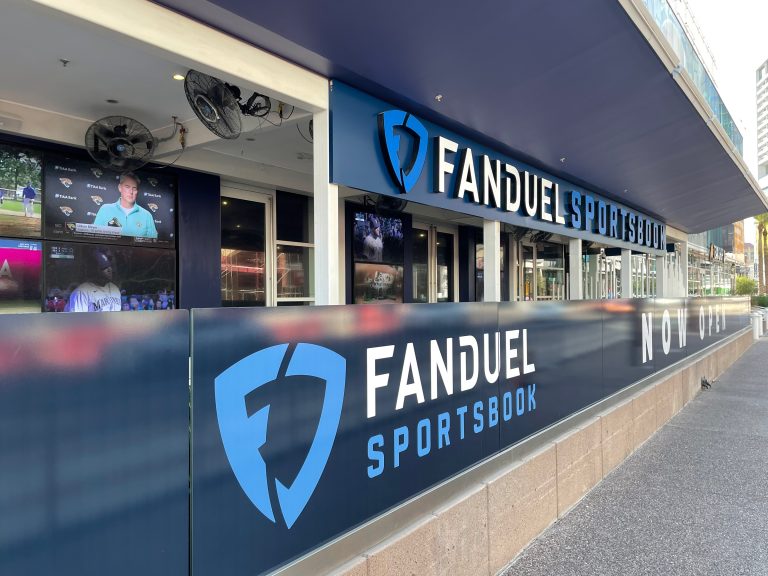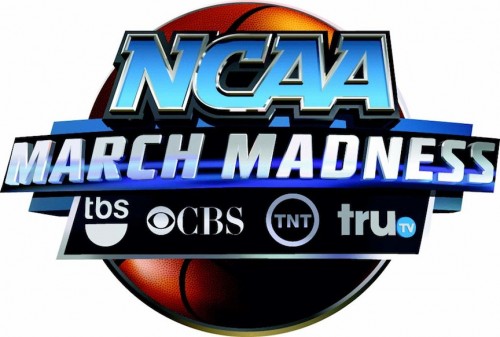On Sept. 9, the first day of the 2021 NFL season, Arizona became the 23rd state in the U.S. to legalize sports gambling. At least 16 sportsbooks are now open in the state, offering residents the opportunity to place bets either at physical locations or online.
It marks the latest milestone in a nationwide rush to legalize sports betting that was unthinkable until a May 2018 U.S. Supreme Court ruling in Murphy v. NCAA overturned a 1992 law that outlawed the practice nationwide outside of Nevada.
The mass legalization and mainstreaming of sports gambling is already having a major effect on sports business as a whole, with everyone from state governments to major pro sports leagues and franchises to media companies to Native American-owned casinos across the country looking to get in on the action.
It is easy to see why–a 2017 study from the American Gaming Association pegged the expected economic output of a mass sports betting legalization movement at $41.2 billion. In the three years since the watershed Supreme Court ruling, sportsbooks across the country have already pulled in over $4.8 billion in revenue alone, while state and local governments have generated over $650 million in tax revenue, according to Legal Sports Report.
In order to understand what has become the biggest story in sports business, one must account for all the players in this multi-billion-dollar game along with the differences between the levels of sports betting legalization in each state and their varying economic footprints. With 31 states having either legalized or set in motion the legalization of sports betting, along with as many as nine more to potentially follow in 2022 according to The Action Network, it has never been a better time to familiarize yourself with the world of legalized sports betting.
Terms to know
Because virtually every state that has legalized sports betting levies a tax on the practice, commercial sportsbook operators are required to report their revenue figures to their state, which allows journalists to see those numbers via publicly available records. Journalists can usually find monthly financial figures on their state’s gaming commission website, and in some cases, the information can be quite detailed.
For instance, New Jersey, which has one of the largest sports betting industries in the country, releases both the total monthly gross revenue and tax revenue of sports betting in a press release, as well as a separate detailed revenue breakdown by sportsbook every month. Both documents can be found on its gaming commission website.
Most reports contain some key terms that journalists should know:
- Wagers: Bets placed, usually expressed in quantity. Not a dollar amount, simply the amount of separate bets placed, often broken up by sport, sportsbook or timeframe.
- Handle: The total amount of money wagered by bettors, also often broken up by sport wagered on, sportsbook or timeframe. This is not the revenue because it does not factor in payouts to winners.
- Payouts: The total amount of money paid out to winners, often broken up into the same categories as above.
- GGR: Gross Gaming Revenue, which represents the amount of money left once the payouts are subtracted from the handle. This is the number used in the chart below.
- Adjusted GGR: The amount of GGR subject to a state tax. Usually a slightly, if at all, lower amount than the GGR.
Levels of legalization
The Murphy v. NCAA ruling did not establish a universal standard for sports betting legalization across the U.S., leaving that up to the states. Thus, many states differ over how and where residents can place bets. Some only allow sports gambling at physical sportsbooks located in places like casinos, while many others allow online sportsbooks to cater to anyone in the state with an internet connection.
Many states require both retail and online sportsbooks to have operating licenses, though there are a few exceptions. Most states also levy a monthly tax on sports betting. The Action Network has a great detailed breakdown of which states allow which types of betting, which is condensed in the table below.
| State | Retail or Online? | Notes | July 2021 GGR | State Gaming Commission Website |
|---|---|---|---|---|
| Arizona | Both | Legalized 9/9/2021 | N/A | https://gaming.az.gov/ |
| Arkansas | Retail only | $449,040 | https://www.dfa.arkansas.gov/racing-commission | |
| Colorado | Both | $15.65 million | https://sbg.colorado.gov/ | |
| Delaware | Retail only | Run by state lottery | $634,169 | https://www.delottery.com/ |
| Illinois | Both* | In-person registration required for online betting until 2022 | N/A | https://www.igb.illinois.gov/ |
| Indiana | Both | $17.45 million | https://www.in.gov/igc/ | |
| Iowa | Both | $7.01 million | https://irgc.iowa.gov/ | |
| Michigan | Both | $20.77 million | https://www.michigan.gov/mgcb/ | |
| Mississippi | Both* | Online betting only allowed within licensed locations | $2.89 million | https://www.msgamingcommission.com/ |
| Montana | Online only* | Run by state lottery, only allowed within licensed locations; physical sportsbook licenses are pending | $450,000 | https://www.montanalottery.com/en/ |
| Nevada | Both* | In-person registration required for online betting | $33.28 million | https://gaming.nv.gov/ |
| New Hampshire | Online only | Only one online sportsbook in operation (DraftKings) | $3.06 million | https://www.nhlottery.com/ |
| New Jersey | Both | $55.0 million | https://www.njoag.gov/about/divisions-and-offices/division-of-gaming-enforcement-home/ | |
| New Mexico | Retail only | No new legislation passed but current laws allow Native American tribal casinos to open sportsbooks | N/A | https://www.nmgcb.org/ |
| New York | Retail only | First online sportsbook licenses set to be issued in late 2021 or early 2022 | $1.27 million | https://www.gaming.ny.gov/ |
| North Carolina | Retail only | Allowed two tribal casinos to open sportsbooks in 2019 | N/A | N/A |
| North Dakota | Retail only | No new legislation passed but current laws allow for Native American tribal casinos to open sportsbooks | N/A | https://attorneygeneral.nd.gov/licensing-and-gaming/gaming |
| Oregon | Both* | Limited online betting through state lottery only | $2.17 million | https://www.oregonlottery.org/ |
| Pennsylvania | Both | $27.48 million | https://gamingcontrolboard.pa.gov/ | |
| Rhode Island | Online only | Only one online sportsbook in operation (Caesars) | $3.26 million | https://www.rilot.com/ |
| Tennessee | Online only | $13.4 million | https://tnlottery.com/sports-gaming/ | |
| Virginia | Online only | $12.69 million | https://www.valottery.com/aboutus/casinosandsportsbetting | |
| Washington D.C. | Both* | Limited online and retail betting partly run by district lottery | $1.37 million (commercial only) | https://www.dclotterysportsbetting.com/operating-sports-betting/ |
| West Virginia | Both | $2.30 million | https://wvlottery.com/requests/2020-06-15-1110/?report=new | |
| Wyoming | Online only | N/A | https://gaming.wyo.gov/home |
Revenue data from state regulators unless otherwise noted. Arkansas data from LegalSportsReport. Illinois Data is from June 2021 via LegalSportsReport. Because New Mexico and North Dakota did not introduce new legislation to legalize or specifically tax sports gambling in those states, neither tracks its sports betting revenue. North Carolina has limited oversight of its tribal casinos and thus does not have a gaming control board, though there is an independent board run by the Cherokee tribe. Washington D.C. tracks commercial revenue separately from that of its district-run sports betting platform.
LegalSportsReport has a more detailed breakdown of states’ handles, GGR and state tax rates here.
Following the money
Because virtually every state that has legalized sports betting levies a tax on the practice, sportsbook operators are required to report their revenue figures to their state, which allows journalists to see those numbers via publicly available records. Journalists can usually find monthly financial figures on their state’s gaming commission website, and in some cases, the information can be quite detailed.
For instance, New Jersey, which has one of the largest sports betting industries in the country, releases both the total monthly gross revenue and tax revenue of sports betting in a press release, as well as a separate detailed revenue breakdown by sportsbook every month. Both documents can be found on its gaming commission website.
Sportsbooks to know
FanDuel
Nearly a decade after launching as a daily fantasy sports platform, where users could create single-day fantasy lineups for major sporting events using a budget system, FanDuel was primed to take advantage of the new world of online sports betting created by the Murphy v. NCAA ruling. In May 2018, soon after the Supreme Court issued its verdict, FanDuel was bought out by Ireland-based bookmaker Paddy Power Betfair. FanDuel launched its online sportsbook in New Jersey in Sept. 2018 and has since made its way into most states where commercial online sports betting is legal. It has also opened physical sportsbooks in New Jersey as well as Indiana, Pennsylvania and Arizona among others. FanDuel is currently not a publicly traded company but reportedly could be soon.
Website: https://www.fanduel.com/
Press Room: https://www.fanduel.com/pres
Media Contact: press@fanduel.com
DraftKings
Started in Boston in April 2012, DraftKings quickly secured a partnership with Major League Baseball and spent most of the 2010s as FanDuel’s primary competitor in the daily fantasy sports industry. Like its rival, DraftKings leveraged its online presence to enter the realm of sports betting soon after Murphy v. NCAA, opening its first online sportsbook in New Jersey in August 2018. It has since aggressively expanded into states with legalized commercial sports betting and is the only sportsbook authorized in New Hampshire. DraftKings has also partnered with casinos across the U.S. to open physical sportsbooks on their grounds, and has secured media partnerships with ESPN and Vox Media. Thanks to a $3.3 billion reverse merger in 2019, DraftKings became a publicly traded company starting in April 2020 under the Nasdaq ticker symbol DKNG.
Website: https://www.draftkings.com/
Press Room: https://www.draftkings.com/about/news/
Media Contact: media@draftkings.com
Caesar’s / William Hill
The British betting and gaming service William Hill first entered the U.S. in 2012 when it set up shop in Nevada, the only place where sports betting was legal at the time. Following Murphy v. NCAA, it expanded its retail and mobile operations into New Jersey, Indiana, Iowa and West Virginia among others. In Sept. 2020, Caesar’s Entertainment Inc., the company behind Caesars Palace in Las Vegas, purchased William Hill for $3.7 billion and took over its sports betting operations, which are now active in over 13 states and oversee the sports betting portions of the Delaware, Rhode Island and Washington D.C. lotteries. Caesar’s is a publicly traded company under the Nasdaq ticker CSR.
Website: https://www.williamhill.com/us
Press Room: https://investor.caesars.com/press-releases
Media Contact: presslv@caesars.com
BetRivers
Rivers Casino, which has locations in Illinois, Colorado, upstate New York and Pittsburgh, Pa., has entered the sports betting game both with retail sportsbooks at its own casinos and an online platform that is operational in nine states and is poised to partner with the Connecticut state lottery when it adds a sports betting component. As a longtime institution in the gambling world, BetRivers’ online sports betting brand is built on the company’s vast experience in the gaming industry. Rivers Casinos is owned by Rush Street Interactive, which has the Nasdaq ticker symbol of RSI.
Website: https://www.betrivers.com/
Press Room: https://rushstreetinteractive.com/news/
Media Contact: Chicago@rushstreetinteractive.com | NewJersey@rushstreetinteractive.com
BetMGM
Like Caesars, MGM Entertainment took its Las Vegas resort-centric gambling brand and partnered with an established betting company from the U.K., Entain Holdings, to create an online sportsbook for the U.S. in a 50/50 joint venture announced in July 2018. The result of that partnership, betMGM, is operational in 15 states and Washington D.C. It also has media partnerships with Yahoo! and The Athletic in addition to its own in-house gambling advice blog, The Roar. betMGM has partnered with many professional sports teams including the NFL’s Arizona Cardinals, Las Vegas Raiders and Tennessee Titans as well as the MLB’s Washington Nationals and NBA’s Philadelphia 76ers. MGM is a privately traded company.
Website: https://sports.betmgm.com/en/sports
Press Room: https://sports.betmgm.com/en/blog/team/press-release/ | https://www.betmgminc.com/blog/
Media Contact: https://www.betmgminc.com/get-in-touch/
WynnBet
While WynnBet’s journey from Vegas casino stalwart to online sportsbook resembles that of Caesars and betMGM, there are some notable differences. Wynn’s mobile sportsbook was adapted from its in-house operation instead of a partnership with an overseas company, and its main media partnership is with Blue Wire Podcasts, a three-year-old podcast startup that now has a studio inside of the Wynn Las Vegas. Additionally, Wynn has opted for multiple spokespeople instead of just one to market its brand, enlisting celebrities such as NBA hall-of-famer Shaquille O’Neal and actor Ben Affleck as spokespeople. Wynn’s sportsbook is operational in seven states and the company is publicly traded under the Nasdaq ticker symbol WYNN.
Website: https://www.wynnbet.com/
Press Room: https://wynnresortslimited.gcs-web.com/press-releases
Media Contact: pr@wynnlasvegas.com











